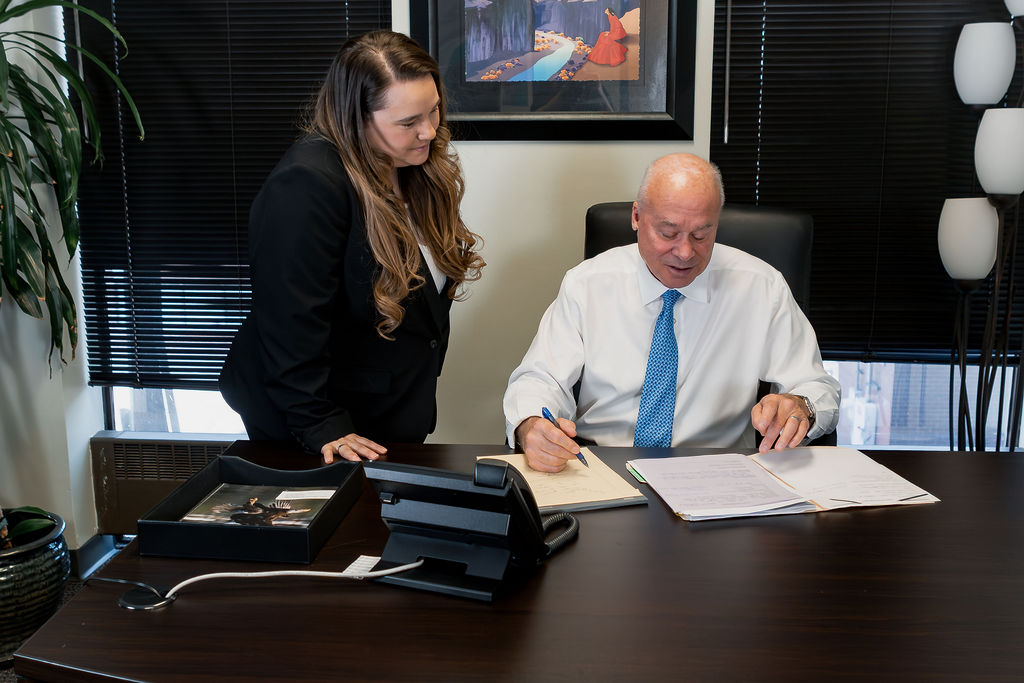Colorado is introducing a new pathway for families to access legal help. Beginning in 2025, the Colorado Supreme Court will license Licensed Legal Paraprofessionals (LLPs) who can provide limited family-law services.
If you’re facing divorce, child custody, or a parental responsibility dispute, you may be wondering:
- What exactly is a Licensed Legal Paraprofessional?
- How do LLPs compare to a family law attorney?
- Could an LLP help in my situation?
At Timlin & Rye, P.C., we help families navigate these transitions every day. Below is what you need to know about LLPs in Colorado, and when it’s still best to work with a full-service family law attorney.
What Is a Licensed Legal Paraprofessional in Colorado?
A Licensed Legal Paraprofessional (LLP) is a newly created legal-professional classification, authorized by the Colorado Supreme Court to provide limited representation in specific domestic relations cases.
LLPs may assist clients in areas such as:
- Dissolution of marriage or civil union with limited assets and debts (as defined by court rules)
- Allocation of parental responsibilities (custody and decision-making)
- Certain parentage cases
However, LLPs cannot handle every type of parentage or custody issue. For example, they are not permitted to represent clients in:
- Parentage matters involving more than two parents or an alleged parent denying or asserting legal parentage
- Cases where a non-parent’s request for parental responsibilities (APR) is contested by at least one parent
These restrictions are designed to keep LLPs focused on lower-conflict, more straightforward family-law matters.
Why Did Colorado Approve LLPs?
The LLP program was developed to help address a significant “access to justice” gap. Many family-law litigants in Colorado go it alone without legal representation, often without fully understanding your rights or court procedures.
By licensing paraprofessionals, the Colorado Supreme Court aims to:
- Expand access to more affordable legal services
- Provide help for families who might otherwise go unrepresented
- Maintain training, ethics and oversight standards similar to those of other regulated professions
LLPs vs Family Law Attorneys: Understanding the Difference
| Licensed Legal Paraprofessional (LLP) | Family Law Attorney (Timlin & Rye) |
|---|---|
| Authorized to handle specific types of family-law cases under defined conditions | Authorized to handle all family-law matters |
| Expected to offer lower-cost services (exact fees still being set) | Provide full representation & advocacy |
| Must operate within strict limitations set by the Supreme Court | Can handle complex, contested and multi-party cases |
| New license program begins in 2025 | Established experience in Colorado family law |
Our perspective: LLPs may offer valuable assistance in uncomplicated cases. But when children are involved, there’s significant property at stake, or issues are contested, working with an experienced family-law attorney ensures your interests are fully protected.
How This Could Affect Your Family Law Case
LLPs will fill a gap for families needing limited help, but many family-law matters quickly grow beyond the LLP’s authorized scope. Some examples:
- Custody disputes that involve complex parenting plans or decision-making authority
- Financial issues such as property division, spousal maintenance, retirement assets
- Parentage cases with multiple alleged parents, or where a non-parent APR request is contested
In those situations, Timlin & Rye, P.C. provides the legal experience and strategic representation necessary to resolve matters effectively and protect your rights.
FAQs About Licensed Legal Paraprofessionals in Colorado
- Can an LLP represent me in my divorce?
Yes — but only if your case meets the Colorado Supreme Court’s criteria for limited assets/scope.
- Can an LLP handle parentage or custody issues?
LLPs may handle certain parentage or custody cases — but not if more than two parents are involved or if a non-parent’s APR request is contested by a parent.
- How much does an LLP cost in Colorado?
LLPs are expected to charge less than attorneys, but official fee structures have not yet been finalized.
- When does the LLP program begin?
The Colorado Supreme Court has approved the rules; licensing is scheduled to begin in 2025.
How Timlin & Rye, P.C. Can Help
At Timlin & Rye, P.C., we believe every family deserves quality representation, no matter how simple or complex the situation. While LLPs may assist in limited-scope cases, our attorneys are ready when:
- Your divorce involves property, debts or business interests
- Custody or parenting time is in dispute
- A parentage or non-parent APR issue becomes contested
- You want full legal protection and peace of mind
➡ Schedule a consultation today with Timlin & Rye, P.C. to discuss your options and determine whether your case fits the LLP guidelines—or whether full attorney representation is the best solution for you.

Final Takeaway
The launch of Licensed Legal Paraprofessionals in Colorado family law is an important step toward expanding access to justice, and at Timlin & Rye, P.C., we’re proud to be part of that progress. Our firm offers flexibility so you can choose the level of representation that fits your needs and budget. Whether your situation calls for full attorney involvement or limited-scope assistance from an LLP under our guidance, you’ll receive the same commitment to quality, integrity, and results.
If you’re unsure which option is right for your case, we can help you decide. Together, we’ll identify the most efficient and cost-effective path forward with the experience and compassion you can trust.
📞 Call Timlin & Rye, P.C. today to learn more about working with our attorneys or Licensed Legal Paraprofessionals and to protect your family and your future.

